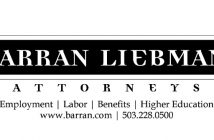According to the U.S. Bureau of Labor Statistics, only about one third of small businesses last more than ten years. But, when speaking of a downtown area, it is those shops that provide the consistency and creativity to the downtown economy.
In Bend, locals and tourists alike know the small businesses that have been a long-term fixture, but perhaps don’t realize, what a fete it is. In the last decade, shops have weathered the highs and lows, and everything in between, of the local and national economies.
“There are several small but very successful and established retail businesses downtown that contribute in a significant way to Bend’s tourism economy,” explains Lone Crow Bungalow (est. 2001) owner Karen Letourneau. “We are the independent, long-term anchor businesses of downtown Bend. We drive downtown.”
Through her effort, Lone Crow Bungalow has grown from being a one-woman show to Letourneau recently opening a second shop, Lark. Letourneau currently has ten employees working mostly full time at both shops.
“I believe (long-standing retail businesses) all have a few things in common,” says Kelli Brooks, Downtown Bend Business Association’s marketing and events coordinator.
“They sell either unique or unique to this area items, some experimented with creative ways to keep customers coming back, and many lowered the overhead and spent more time in their business.”
Kristen Heinz, owner of Hot Box Betty (est. 2001) agrees, “You have to get creative and adapt to the economy and clientele and listen to what they want.”
The main challenges for a tourist town’s retail shops lies in the fluctuating economy, both yearly and long-term economic cycles. Managing seasonal ups and downs is as important as weathering major economic downturns, such as the last one that began in 2008.
Most of the long-standing retail shops, like Douglas Jewelry Design (est. 2001), point to strong customer service, an established reputation and sound financial management as the keys to survival.
Stereo Planet (est. 1980) focused on service and installations to keep their doors open. In addition, they credit their employees for working hard to keep customers happy, who in turn provided excellent word-of-mouth marketing.
Leapin’ Lizards Toy Company (est. 1995) also stresses the importance of quality employees. During the slow season, instead of laying anyone off, they simply reduce everyone’s hours. In addition, they keep a light inventory and focus on their best sellers.
Most of the retail shops maintain a healthy combination of local and tourist customers. This balance not only increases the customer base, but softens the down times of the year.
“We enjoy a pretty good balance between tourist and local business,” says Douglas Jewelry Design co-owner Steven Douglas. “This is part of what smoothes out the seasonal highs and lows, along with the online component of our business.”
DBBA’s Brooks echoes his sentiment, “a retailer needs to understand the ratio of locals to tourists. Depending upon the business, they are both very important, sometimes at different times of the year. If a retail store is tourist driven, they need to budget appropriately.”
These downtown businesses consider their relationship with the City of Bend to be mostly favorable, but with a few exceptions. While they appreciate some of the events, parking and loitering issues remain a concern.
“We have been open for First Friday as long as we’ve been open,” says Douglas. “It’s similar to other events in that it doesn’t necessarily generate sales at the time but it gives people a chance to learn about who we are and what we do. We consider it a marketing, not sales exercise.”
Letourneau explains, “Both of my shops do most of the First Fridays. But, we don’t do any other events, as they tend to really burn out an already busy full-time staff.”
The complaints to the City revolve around basic downtown needs, including cleanliness, bathrooms, dealing with vandals and transients and signage code enforcement. Letourneau points to the fact most people think the city sets up holiday decorations and lights, when, in fact, the individual businesses and DBBA handle it.
Meanwhile, Douglas wonders how the City can expect anyone to enjoy a meal and casually browse the shops within the two-hour parking time limit currently enforced by the City. Houston says the street closures during events actually hurt Stereo Planet’s business.
“The City could do a better job with the panhandling and transients,” says Heinz. “We need to keep downtown safe and clean for families.”
In all, the retail shops, the DBBA and the City of Bend all work hard to maintain downtown Bend’s unique style and memorable characteristics. They all realize the benefit of small businesses and their contributions to our local economy. And while owning and running a small business can be an arduous task, the well established ones seem to have discovered the secret to staying alive.
“I think the general population has no idea that these businesses have been around for that long, employed so many, and stuck it out during every winter or spring and the downturn, mostly by running lean and smart,” says Letourneau.
Brooks offers this advice to prospective downtown retail shop owners: “Do your research. Embrace the reasons for having a business in Downtown Bend. We have a lot of community events, some that close the streets. Parking is a big topic, but if we had open parking spaces, that would mean a lack of customers, and get involved with the business association (DBBA).”
(Photo above: Jonathan Houston of Stereo Planet | Photos by Krystal Marie Collins)





